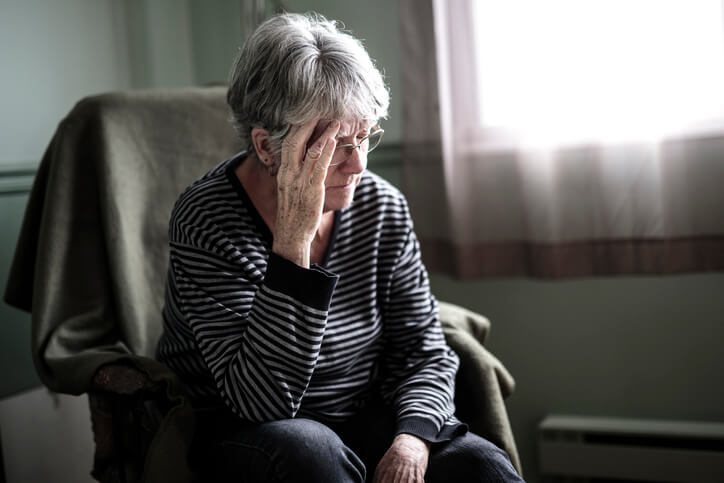If a new report reveals that nearly 100,000 more people in a certain demographic had been pushed into absolute poverty over a two-year period thanks largely to one factor, you might reasonably assume that COVID or maybe the cost-of-living crisis might be to blame?
You may be surprised to read then that the true cause for this sudden upturn in poverty is as a result of the change in the state pension age, which rose by a year to 66 for men and women between December 2018 and October 2020.
At first glance the change of one year may not sound very significant. But if I tell you that, as a result, there are now more than double the number of people aged 65 in absolute poverty (about 165,000 people) than there were before this change, I hope that you would share my shock and dismay.
If you are 65 – there is now a one in four chance that you are living in absolute poverty.


For a major government policy to have such a serious negative impact on the lives of so many older people is deeply worrying.
With the right action and support, the raising of the state pension age can be beneficial in allowing older workers to continue making a valuable contribution to the workplace and UK economy for longer and gives them the opportunity to earn additional income and boost their pension pots. Everyone benefits from having a truly age-diverse workforce which pools the skills and life experience of everyone from 16 to 66.
Many employers already know this and are reaping the benefits of employing greater numbers of older worker in terms of productivity and addressing their skills shortages. It’s not a charity case for employers to do this, it is just good business sense.
The logic behind raising the state pension age is that we are all living for longer and more capable of working beyond the age that generations of older workers before us. If that logic is to be realised, more needs to be done to ensure that people can spend the additional time before they can claim their state pension in decent jobs.
The newly published Institute for Fiscal Studies (IFS) report into Recent and future patterns of work among those around state pension age, commissioned by the Centre for Ageing Better, should be essential reading for Baroness Neville-Rolfe who is currently conducting the second Government Review of State Pension age.
The review is due to publish next May and will explore whether the statutory timetable to raise the state pension age to 68 by 2046 should be accelerated. Clearly any reform from this review won’t benefit the tens of thousands of people already in absolute poverty and those at risk of being so in the near future as a result of the most recent increase in state pension age.
The IFS analysis reveals that when the state pension age was raised the net income of 65-year-olds reduced by an average of £108 per week.
Even more worrying is that it’s further exacerbating inequalities in society. The analysis reveals that those on lower incomes, single people, renters and people whose formal education ended at GCSE Level were the hardest hit by the year extension.
The report also shows that the biggest increases in poverty have been among people not in paid work. Many in this group will have struggled and failed to find appropriate work or met with age discrimination in the recruitment process. Others will have caring responsibilities or health conditions but not found employers willing to offer reasonable adjustments and flexibility to enable them to work.
These shocking statistics are another reminder that the Government must urgently prioritise improving access to work for people in their 60s: investing in tailored employment support for those out of work, expanding access to occupational health support, and bringing flexible work and carer’s leave proposals into legislation. A failure to do so is likely to consign tens of thousands more people into poverty every year.
But even if the government can deliver all this in the timely manner that the current situation requires, there will remain some individuals who are simply unable to work. These people will still face the prospect of falling into poverty as a direct consequence of the raising of the State Pension Age.
So beyond a significant increase in the support for older workers to stay in work for as long as they wish or are able to, the move to push eligibility for the state pension age further and further back in time must also be accompanied with a holistic review of how our social security system supports us as we age.
Now that the consequences of the raising of the state pension age are becoming clear, there is an urgent need to find ways to mitigate the hardship awaiting those whose ability to work is compromised in the years before they reach pension eligibility.
I truly hope that the government has not just accepted that the years leading up to retirement will be onerous and cash-strapped for a significant proportion of the population as a price worth paying to keep down public spending.












